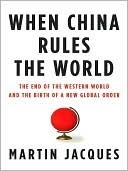But even Chiang Kai-shek’s power was circumscribed by a combination of the Japanese occupation of the north-east, the presence of other foreign powers and his lack of support in rural areas, together with the opposition of the Communist armies in the south (until he drove them out in the early 1930s), followed by their Long March around China in 1934–5 when they tried to evade the Nationalist offensive against them.77
Welcome back. Just a moment while we sign you in to your Goodreads account.


